2022 Plenary Keynote Sessions
MONDAY, AUGUST 15, 2022 | 4:20-5:30 PM
4:20pm Plenary Introduction
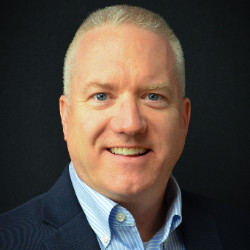 James Warren, PhD, Vice President, Pharmaceutical Development, Ultragenyx Pharmaceutical
James Warren, PhD, Vice President, Pharmaceutical Development, Ultragenyx Pharmaceutical
4:30 Lessons Learned from the Pandemic
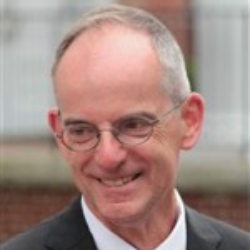 Nicholas Warne, PhD, Vice President, Pharmaceutical Research and Development, BioTherapeutics, Pharmaceutical Sciences, Pfizer
Nicholas Warne, PhD, Vice President, Pharmaceutical Research and Development, BioTherapeutics, Pharmaceutical Sciences, Pfizer
The speed and scale of industry response to the COVID pandemic was unprecedented, ultimately leading to
the availability of several vaccines in under a year. This presentation will discuss the approach taken by Pfizer, with their partner BioNTech, in the development, manufacture, and distribution of the vaccine drug product while reflecting on lessons
that may, or may not, be applicable to future product development.
5:00 Advances in Vaccine Formulation and Stability
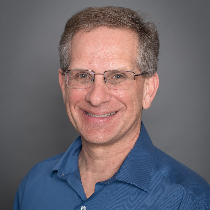 David B. Volkin, PhD, Distinguished Professor, Pharmaceutical Chemistry, University of Kansas, Lawrence
David B. Volkin, PhD, Distinguished Professor, Pharmaceutical Chemistry, University of Kansas, Lawrence
This presentation will provide an overview of analytical characterization and formulation development considerations for new vaccine
candidates targeted for use in low- and middle-income countries (LMICs). Illustrative case studies with vaccine candidates (e.g., live-virus, adjuvanted recombinant protein) will highlight implementing state-of-the-art stability-indicating assays
to enable development of stable formulations. Challenges with developing lower-cost formulations (e.g., multi-dose, combination, non-parenteral) to expand vaccine coverage in LMICs will also be discussed.
WEDNESDAY, AUGUST 17, 2022 | 3:50-5:00 PM
3:50pm Plenary Introduction
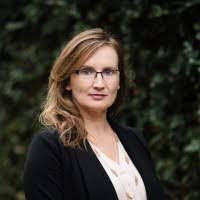 Nathalie Clément, PhD, CEO, Unicorn Consultations, LLC
Nathalie Clément, PhD, CEO, Unicorn Consultations, LLC
4:00 New Therapeutic Modalities and Moore’s Law in Biomanufacturing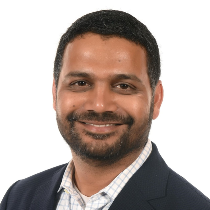
Hari Pujar, PhD, Operating Partner, Flagship Pioneering; COO, Tessera Therapeutics
These last two decades have seen the emergence of new therapeutic modalities beyond the traditional ones of small molecules and recombinant proteins.
These new modalities, including recombinant proteins, have been essential in the rescuing of what seemed like an unsustainable investment path of our industry. Manufacturing technology advances have enabled the widespread distribution of small molecule
medicines at very low cost, and biologics are following suit. As we have embarked on newer, more complex modalities, biomanufacturing has appeared to stumble. Viral vectors and cell therapy have been at the tip of the spear of this challenge. Low
productivity, limited capacity, and complex operations came in the way of fully realizing the full biological potential of these modalities. Separately, we have seen the immense success of mRNA vaccines, enabled by unprecedented biomanufacturing feats,
resulting in the distribution of billions of doses from a zero start. The talk will chronicle the advancements in biomanufacturing of different therapeutic modalities, drawing parallels to semiconductor chip manufacturing, and establishing the rightful
and bright future of biomanufacturing.
4.30 Cell and Gene Therapy (R)evolution
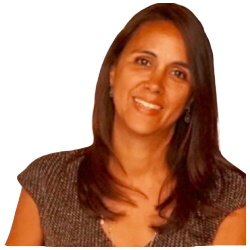 Mercedes Segura Gally, PhD, Vice President, Process Development, ElevateBio
Mercedes Segura Gally, PhD, Vice President, Process Development, ElevateBio
The concept of gene therapy arose nearly half a century ago. Turning that concept into
a therapeutic reality required years of scientific discovery, technological advances, and pioneering efforts, culminating in several regulatory approvals over the last decade. These success stories paved the road for a second wave of advanced therapies
that leverage new technologies more recently made available in the cell and gene therapy toolbox. Compared with traditional biologics, cell and gene therapy products pose unique product characterization and manufacturing challenges. This presentation
aims to summarize the progress made on cell and gene therapy drug development in recent years.
Nathalie Clément, PhD, CEO, Unicorn Consultations, LLC
Dr. Clément has 25+ years of experience in the field of Gene Therapy, with industry leading expertise in viral vectors, specifically adeno-associated virus (AAV).
She led AAV production and process development at research, preclinical and clinical grades during her time at the Powell Gene Therapy Center, University of Florida, Gainesville. SHe oversaw manufacturing, release and stability campaigns of more than
eight AAV INDs, including CMC preparation. Her research focused on optimizing large-scale suspension platforms using HSV or transfection systems in suspension to produce clinical rAAV. Dr. Clément then joined Resilience as the head of the Process
Development group for Viral Vaccines and Gene Therapy, where she oversaw production at scale up to 200L in suspension format, and in large scale adherent platforms. Currently, Dr. Clément acts as the Vice-President of Vector Development at
a new startup company and continue to consult in the field of gene therapy and AAV.
Hari Pujar, PhD, Operating Partner, Flagship Pioneering, and Chief Operating Officer, Tessera Therapeutics.
Hari is Chief Operating Officer of Tessera, as well as Operating Partner at Flagship Pioneering. At Tessera, his responsibilities
span across research, manufacturing, program management and IP. Hari is a global Biopharmaceutical executive with 20+ years of value creation in the biologics and vaccine industry. Before Flagship, Hari served as Chief Technology Officer of Spark
Therapeutics, leading the technical operations, process and technology development and quality assurance organizations. At Spark, Hari was responsible for growing and scaling the company’s cutting-edge technology capabilities for an expanding
development pipeline. Prior to Spark, Hari was head of Technical Development & Manufacturing at Moderna Therapeutics. At Moderna, he built and led the technology and early manufacturing organizations that delivered on supply for more than a dozen
clinical programs in a brand-new technology area.
Mercedes Segura is a senior executive with extensive experience on Advance Therapy Medicinal Products. Her interests are on all aspects of pharmaceutical development for cell and gene therapies. She has worked on all phases of clinical
development from pre-IND to marketing application (BLA and MAA) and helped grow start-up companies to medium size. Mercedes completed her undergraduate studies in pharmacy and a MSc in Biotechnology at the Universidad de Buenos Aires, Argentina. She
enrolled to a PhD program at l´Université Laval in Quebec and conducted research studies at the Biotechnology Research Institute of the National Research Council Canada (BRI-NRC). Her thesis focused on the production and purification
of gamma-retroviral and lentiviral gene therapy vectors. Mercedes pursued post-doctoral studies at the Universitat Autònoma de Barcelona, Spain, where she mainly focused on bioprocessing and analytical characterization of AAVs, adenoviral vectors,
and VLP vaccines. In 2013, Mercedes joined bluebird bio, a gene therapy company located in Cambridge, MA. During her 7 years at bluebird, she helped build the company’s infrastructure to advance pre-clinical and clinical gene therapy programs
throughout different stages of development. She led several scientific teams including Vector Manufacturing, Process Characterization and Analytical Characterization, mRNA Process and Analytical Development, and Cellular Process Development for both
HSC and T cell-based gene therapy programs. Mercedes joined AVROBIO in 2020, where she helped develop early- and late-stage CMC strategies for AVROBIO portfolio of lysosomal storage disorder (LSD) programs and brought drug product process and analytical
development capabilities in house. Currently, Mercedes leads the Process Development group at Elevate bio where she is responsible for executing on the high-level strategy and day-to-day operations for a wide variety of cell and gene therapy process
platforms.
David B. Volkin, PhD, is the Ronald T. Borchardt Distinguished Professor of Pharmaceutical Chemistry, and co-founder of the Vaccine Analytics and Formulation Center (VAFC) at The University of Kansas. The VAFC collaborates extensively
with partners (non-profits, small/large biopharma/vaccine companies, and academia) on analytical characterization and formulation development projects to facilitate novel candidates entering clinical trials with an emphasis on new candidates for use
in the developing world. He has collaborated on the analytical and formulation development of ~100 biotherapeutic and vaccine candidates during ~10 years at KU including now marketed products (recombinant HA flu vaccine (FluBlok™) and an oncolytic
herpes virus-based therapy, (T-VEC™) as well as late-stage clinical candidates (a live multivalent dengue virus vaccine candidate (TAK-003) and a recombinant non-replicating rotavirus vaccine, (NRRV).
Nicholas Warne, PhD, Vice President, Pharmaceutical Research and Development, BioTherapeutics, Pharmaceutical Sciences, Pfizer
Nick Warne is currently Vice President of Pharmaceutical Research and Development at Pfizer. Nick has
30 years of industrial experience focusing on biologics formulation development, dosage form design and manufacturing process development. He and his team have been fortunate to have contributed to the licensure of 15 biologics including clotting
factors, growth proteins, mabs, vaccines and ADCs. Nick holds numerous protein formulation patents and, with his group, has made over 100 presentations at national meetings and in journals. Prior to his position at Pfizer, Nick had positions of increasing
responsibility at Wyeth and Genetics Institute, and has been based in Andover, Massachusetts. Nick received his PhD in Chemistry from Purdue University under the guidance of Professor Michael Laskowski Jr. He received his BS in Biochemistry, with
Distinction in Research, from the University of Rochester.
James Warren, PhD, Vice President, Pharmaceutical Development, Ultragenyx Pharmaceutical
Dr. Warren has more than 25 years of experience in the pharmaceutical and biotechnology industry, with a focus in bioprocess development and
manufacturing of viral vectors, viral vaccines, and biologics. At Ultragenyx, he leads a team of 65 scientists and engineers, responsible for all early and late stage Process and Analytical Development of viral vector products as well as Pilot Scale
Manufacturing in the Woburn, MA Pilot Plant. Before coming to Ultragenyx Jim held senior CMC leadership positions at Homology Medicines, bluebird bio, and Shire. Earlier in his career, Jim spent 16 years at Merck & Co., Inc., where he led process
development, technology transfer, and manufacturing sciences teams responsible for development of several clinical vector and vaccine candidates and the licensure of multiple commercial vaccines (RotaTeq®, Varivax®, ProQuad®, and Zostavax®).
Dr. Warren holds BS/MS degrees in Biotechnology from William Paterson University and a PhD in Molecular and Cellular Biology from Lehigh University.